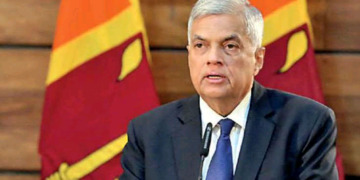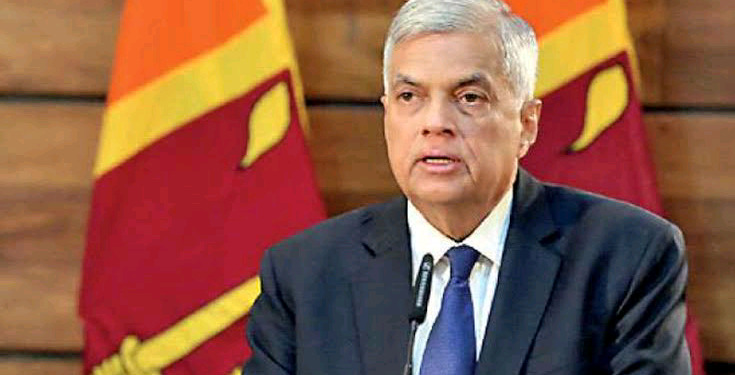By Enyichukwu Enemanna
The acting President of Sri Lanka, Ranil Wickremesinghe has imposed a nationwide curfew until Thursday morning to contain the prolonged protests in the country, an official notification issued on Wednesday says.
“It is necessary to maintain public order in the areas specified … I, Ranil Wickremesinghe … direct that no person shall be on any public road, railway, public park, public recreation ground or other public ground or the seashore in such areas, from 12.00 hour of July 13, 2022, to 05.00 hours of July 14, 2022,” the notification said.
This came after a Gazette Extraordinary issued by President Gotabaya Rajapaksa appointed Prime Minister Wickremesinghe to “exercise, perform & discharge the powers, duties & functions of the Office of President with effect from July 13, 2022.”
Earlier in the day, clashes broke out between security forces and protesters near parliament, with several injured from both sides, according to the local media.
Rajapaksa had fled to the Maldives in the early hours of Wednesday and was expected to head to Singapore from the Maldives, according to the Colombo-based Daily Mirror Online.
Wickremesinghe on Wednesday declared a state of emergency in his role as the acting president.
Amid mass protests in the wake of a worsening economic crisis, Sri Lanka’s Parliament Speaker Mahinda Yapa Abeywardena said on Saturday that the president would resign on July 13.
The development came after thousands of protesters stormed the presidential palace in Colombo and also set fire to the prime minister’s home.
Protesters have blamed Rajapaksa’s political dynasty for the crisis. Mahinda Rajapaksa, a brother of the president, resigned as prime minister in May.
Crippled by a shortage of foreign exchange after the collapse of its tourism-dependent economy, the island nation of 22 million people has defaulted on all of its foreign debt.
It has been unable to pay for fuel and other essentials, resulting in anti-government protests.
A lack of fuel to run power stations has in turn led to daily power cuts. Schools have been shut and state employees have been asked to work from home.
The Government is negotiating with the International Monetary Fund for a bailout package.
Months of protests have demanded the resignation of President Rajapaksa, whose government has been blamed for the chronic mismanagement of Sri Lanka’s finances.




































